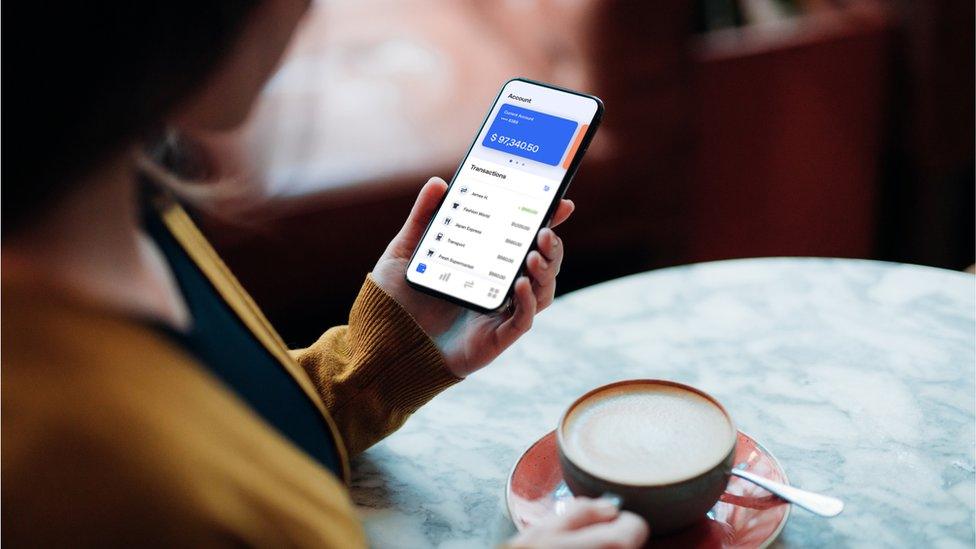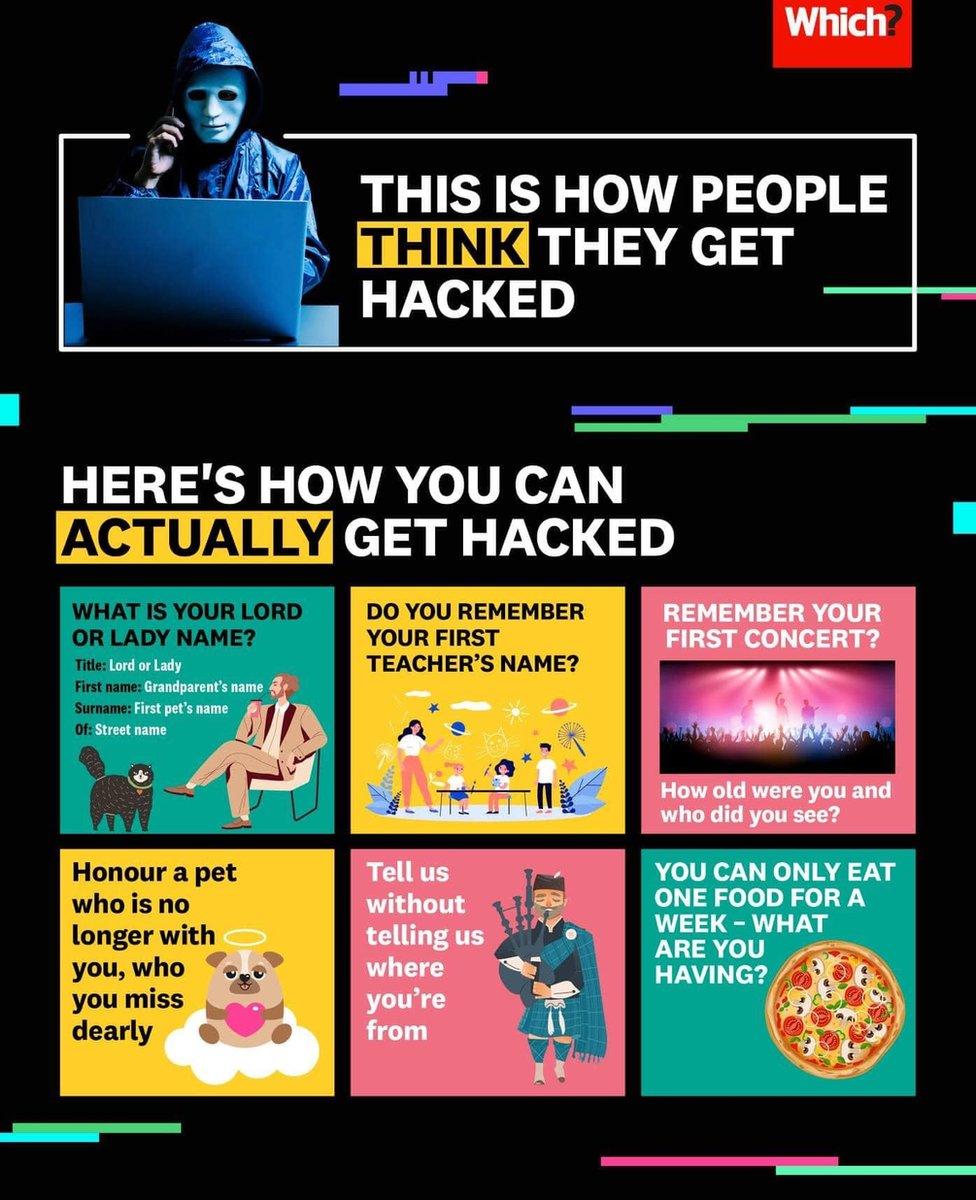Online scams: How do I avoid cyber crime this Christmas?
- Published

We are too used to giving away information freely on social media, says one psychologist
What is your rock star name? Can you remember your first pet? What's the first gig you went to?
If questions like this pop up when you're scrolling through social media online, you should think twice before answering, a consumer group has warned.
The UK's fraud reporting service, external said £2.5bn has been stolen in more than 480,000 cyber crimes in the past year.
And Which? estimates online crime in the UK increased 33% since the start of the Covid pandemic.
Adam French, senior consumer editor at Which?, warned cyber crime would only increase over Christmas and the new year period as more people shop and socialising online.
Of Action Fraud's almost half a million reported crimes, more than 90,000 were online shopping or auction scams, and in Wales, fraud reports rose by a quarter during the first year of the pandemic.
'It is not just a bit of fun'
Senior consumer rights editor Mr French said although people have some idea how they can be scammed online, there were many new ways in which they may be caught out.

"Unfortunately, online scams can happen, a number of different ways, but at the heart of it is usually fake content, whether that's search engine adverts which crops up, when you're looking for the next best investment opportunity, an ad targeting you on social media or sites selling you really lovely clothes at a bargain price.
"There are so many different ways that scammers can come at you, one of the worst is where you think you're talking to a real person."
He said criminals were building much more realistic sites to scam people, particularly after "a real explosion of online shopping" in the last couple of years.
Asking for personal information to scam people online is called phishing.
Mr French said the types of questions may seem irrelevant at first, but could help someone trying to guess your security questions.

Adam French, senior consumer editor at Which?, says there are so many different ways people can be caught out online
"Those kind of quizzes and those personality type tests may seem a little bit of fun, but actually the information out there in the public domain can ultimately be used against you and it's something we do recommend people avoid participating in, even if it does seem like just a bit of fun," he said.
He explained what made the problem worse was so many cyber crimes went unreported due to many not knowing how to report it, or feeling embarrassed they fell for a scam.
"You wouldn't be embarrassed if you've been the victim of doorstep crime or you had been robbed," he said.
"People report it straight to the police to get it dealt with and that's exactly the same mentality we need,
"They are very intelligent criminals and they are good at what they do."
Mr French said big tech companies, such as Facebook and Google, "have a responsibility to ensure that the advertising they're being paid to promote to you isn't fraudulent".
"I don't think that's a big ask and that will go big long way to protecting us from fraudulent messaging reaching our eyes in the first place."
Why do people fall for these scams?
According to a psychologist Martin Graff, it is all down to our relationship with being online.
"The very innocuous questions are the kind of quizzes we would see on Facebook anyway, so people just dive into these things without giving them a lot of thought," said Mr Graff, of the University of South Wales.
"It is what we might call low level disclosure and is almost sort of chit-chat stuff.
"You would happily tell someone you just met in a pub what your favourite ice cream is and it's no big deal really is just to say those kind of things."

Psychologist Martin Graff said people know they should not give out their information online but are used to it with social media
He explained there was a "privacy paradox", with people who give away information like this, in that people know they should not give away information online but "there is a bit of a mismatch between what we actually believe and what we do".
Often people forget there is a "real person on the other side of the computer" and the willingness to give away information like this online is mirrored in our approach to social media.
"You wouldn't go outside and shout the same information you write on Facebook down the road with a megaphone which is essentially what you're doing when making an announcement on social media isn't it."
Bank scam victims speak of trouble getting refunds
What do I do if I think I have been scammed?
Action Fraud said people need to 'Take Five to Stop Fraud', external campaign to keep themselves safe. these include:
Stop: Taking a moment to stop and think before parting with your money or information could keep you safe
Challenge: Could it be fake? It's okay to reject, refuse or ignore any requests. Only criminals will try to rush or panic you
Protect: If you think you've been a victim of fraud, contact your bank immediately and report it to Action Fraud, external
If you need more support for the issues discussed, visit BBC Action Line.
Related topics
- Published11 September 2021

- Published4 February 2021

- Published22 May 2021
